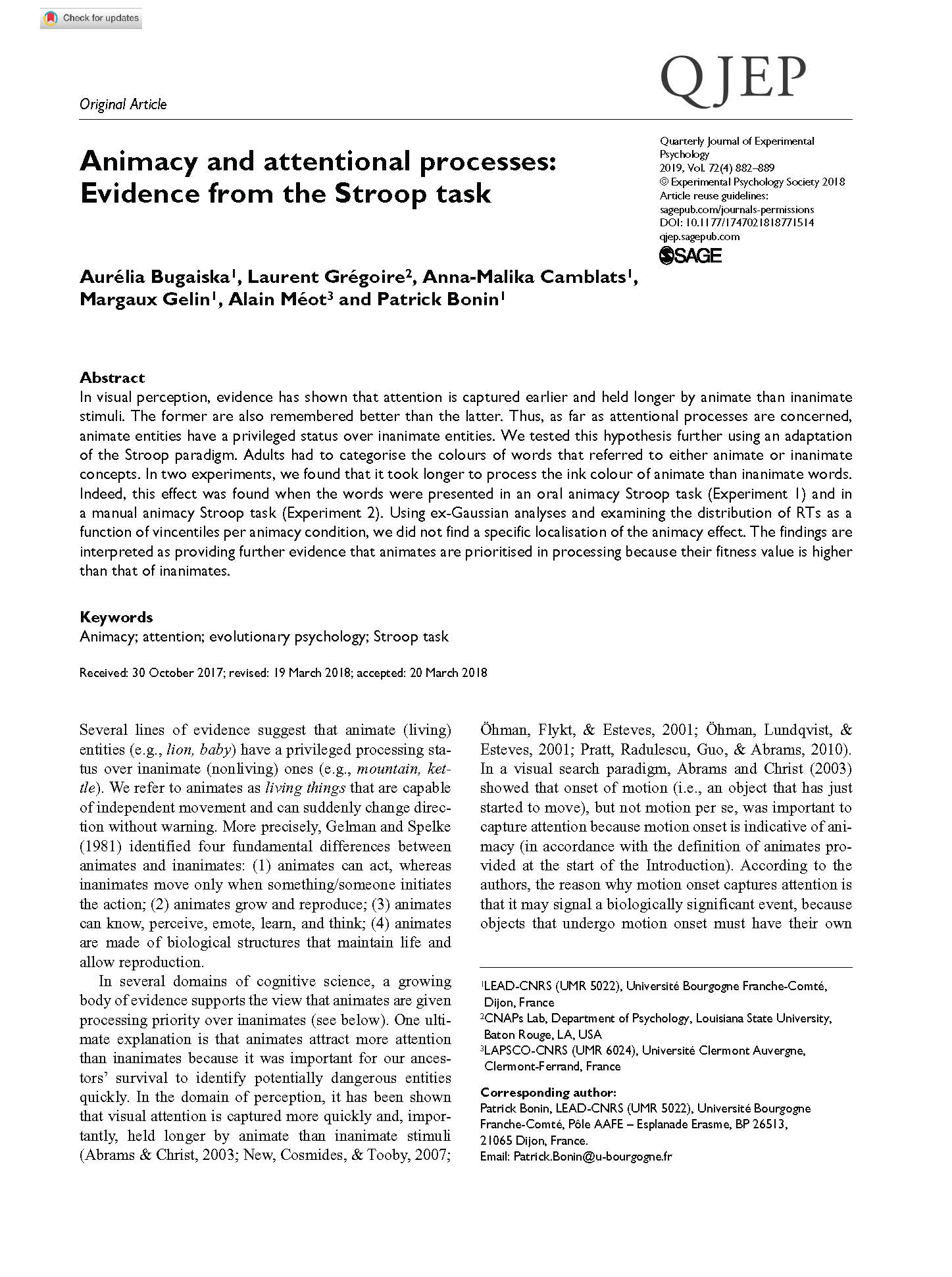In visual perception, evidence has shown that attention is captured earlier and held longer by animate than inanimate stimuli. The former are also remembered better than the latter. Thus, as far as attentional processes are concerned, animate entities have a privileged status over inanimate entities. We tested this hypothesis further using an adaptation of the Stroop paradigm. Adults had to categorise the colours of words that referred to either animate or inanimate concepts. In two experiments, we found that it took longer to process the ink colour of animate than inanimate words. Indeed, this effect was found when the words were presented in an oral animacy Stroop task (Experiment 1) and in a manual animacy Stroop task (Experiment 2). Using ex-Gaussian analyses and examining the distribution of RTs as a function of vincentiles per animacy condition, we did not find a specific localisation of the animacy effect. The findings are interpreted as providing further evidence that animates are prioritised in processing because their fitness value is higher than that of inanimates.
Animacy and attentional processes: Evidence from the Stroop task
